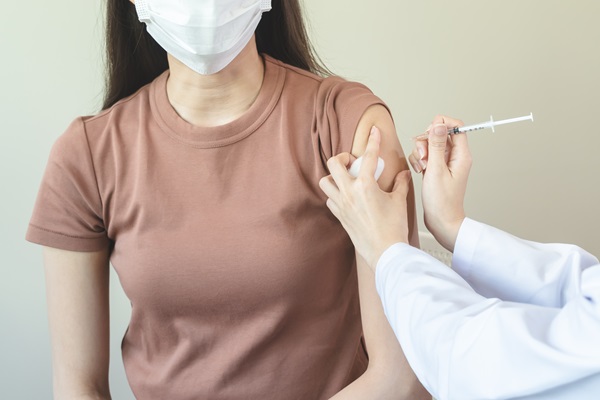Discreet and Confidential STD Testing from a Medical Clinic

STD testing is a private matter. Therefore, the primary care clinic strives to create a safe and discreet place for you to undergo STD testing in complete confidentiality. The test results of sexually transmitted diseases and infections are often kept private. However, it depends on the patient's condition and age, so this is not always the case. However, there are situations in which a patient must actively request confidentiality for STD test results from their doctor.
Patients can be certain that their STD testing results will remain private and secure. The Health Insurance Portability and Accountability Act (HIPAA) ensures that your lab results and medical information remain private at all times throughout the testing procedure.
The STD testing process
Different methods exist for testing for STDs and STIs, each optimized for a certain kind and location of illness or infection. These methods include:
Blood tests
A doctor or lab expert will use a tiny needle to extract some blood, usually from the person's arm. They will need to collect blood in multiple vials to test for multiple sexually transmitted diseases. The blood specimen will be submitted to a lab for analysis after collection. After seven to ten days, the primary care physician at the clinic will contact the patient with the results.
Swab tests
Medical professionals may use a long swab that looks like a Q-tip to collect a fluid sample from the throat, anus, cheek, or vagina, depending on the probable location of the STD or STI. Swab tests often provide results in a week.
Urine test
When a urine test is ordered, the patient is taken to a secluded area and instructed to urinate into a collecting cup or tube. After collecting the urine sample, the doctor will send it to a medical lab. It takes about a week to get the results. Sometimes, the physician can detect and diagnose STDs like genital warts and pubic lice with a cursory visual examination.
Diseases detected by STD tests
The STD test checks the blood, urine, or other biological substances for diseases and infections. Depending on the kind of sexually transmitted infection (STI), symptoms may appear a few days after infection or even years later. The following is a list of STDs and the approximate times that symptoms may present themselves:
- Hepatitis A, B, and C (HepA, HepB, and HepC) – six months
- Chlamydia – between two to three weeks
- Gonorrhea – between four to seven days
- Herpes simplex virus types 1 and 2 (HSV-1 and HSV-2) – one week
- Human immunodeficiency virus (HIV) – two to six weeks
- Human papillomavirus (HPV) – one month or several years
- Pubic lice (crabs) – several weeks
- Trichomoniasis – after four weeks
- Syphilis – two to three weeks
Overview of the process
Sexually transmitted diseases are prevalent in the United States, and anyone who is sexually active is susceptible. By the time they reach the age of 25, 50 percent of sexually active people will have contracted an STD. Statistics from the Centers for Disease Control and Prevention (CDC) show that about 20 million new STDs occur annually in the United States, with half of these cases occurring in young people between the ages of 15 and 24.
Close personal contact is the primary means of transmission of STDs. There may be no outward symptoms of certain sexually transmitted diseases. However, the patient's health may be in jeopardy if they do not get immediate treatment. The primary care clinic provides STD testing for its patients. Patients often prefer strict confidentiality during the entire process, considering how sensitive the situation can be.
The need for confidential STD testing
Being tested for STDs in a doctor's office or, even worse, a neighborhood clinic might cause anxiety. Individuals might encounter someone familiar, and explaining the situation might be somewhat awkward. Also, it might be embarrassing to discuss one's sexual history with a regular doctor or a complete stranger.
These concerns may be put to rest by visiting a medical clinic for discreet STD testing. To take a test, individuals must first schedule an appointment at a facility that meets their needs for privacy and convenience. When the scheduled testing time arrives, they only need to hand the medical professionals the samples and depart. The primary care clinic has testing facilities that provide a wide range of diagnostic procedures, so no other patients will ever know the specifics of the test and health history.
Remember to test
When you need fast, easy, and confidential STD testing, visit the primary care clinic. Your health records and laboratory results will be kept private and secure per HIPAA regulations. The clinic has board-certified doctors who will talk to you about your test findings and give their recommendations. If you have any questions, please get in touch today for an appointment.
Request an appointment here: https://tx-urgentcare.com or call Texas Urgent Care & Imaging Center at (832) 941-1894 for an appointment in our New Caney office.
Check out what others are saying about our services on Yelp: Read our Yelp reviews.
Recent Posts
Flu shots protect children from common strains of influenza. No one wants to be stuck in bed dealing with the symptoms of this common illness. A flu shot can help prevent complications and reduce the chances of catching the flu in the first place. A primary care or urgent care doctor can further discuss the…
Consulting your primary care physician, or "PCP," regularly can help ensure good health. This typically means every three years for most healthy adults under age 50. After your 50th birthday, annual physicals are advised. But what if you have a minor illness? It can be difficult to tell whether you should visit your PCP. This…
Immunizations are an important part of primary care. Not only can they help prevent illness, but they can also reduce the chance of complications should you get sick. Whether you want to get ahead of flu season or whatever else may come your way, your primary care doctor can provide the vaccinations you need.When many…
A walk-in clinic can provide you with the care that you need without the stress of waiting for an emergency doctor in a crowded room. Receiving immediate care is important whenever you are injured or sick. That is why choosing an urgent care clinic over an emergency room is ideal. Here are the benefits that…


